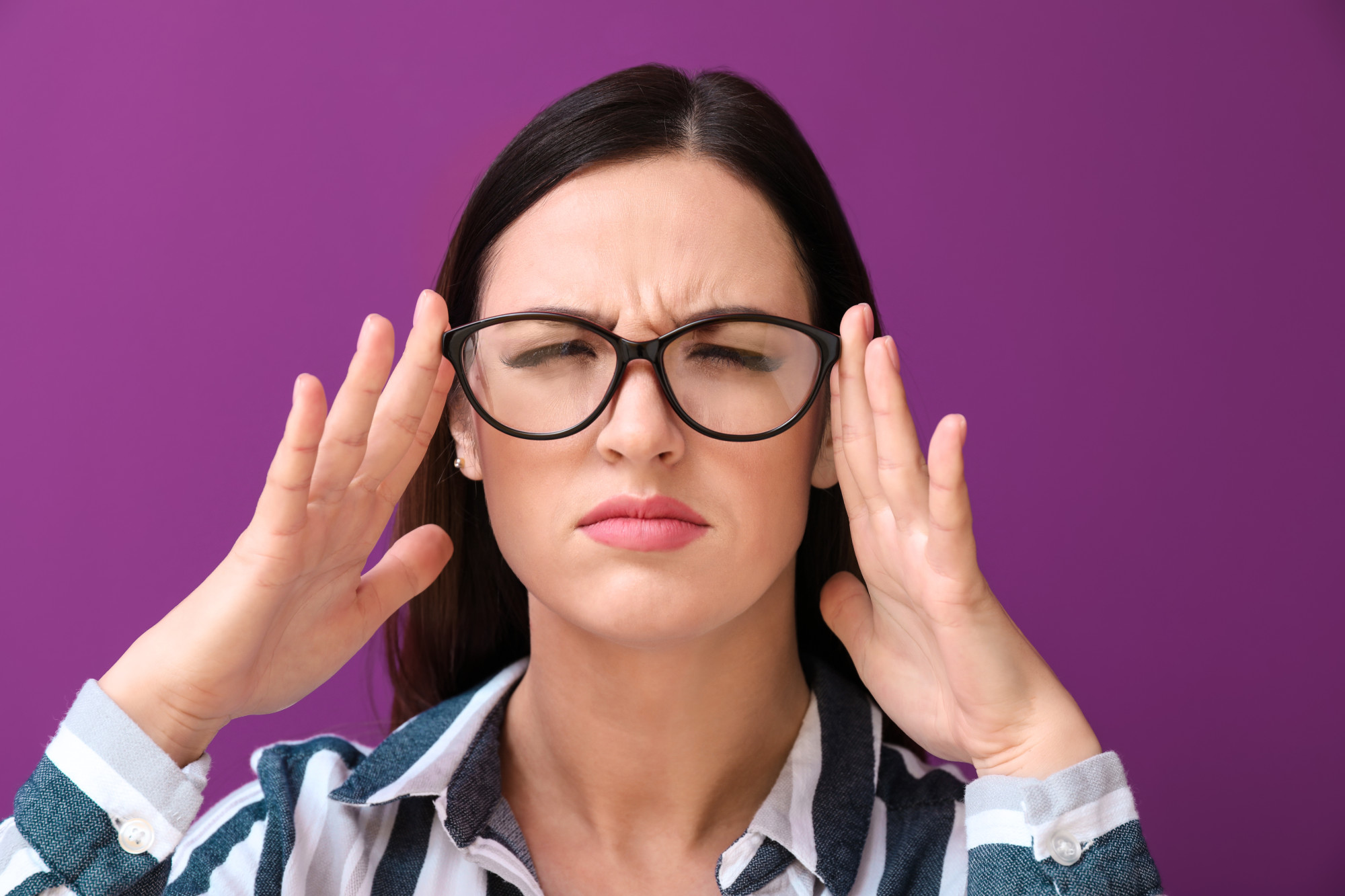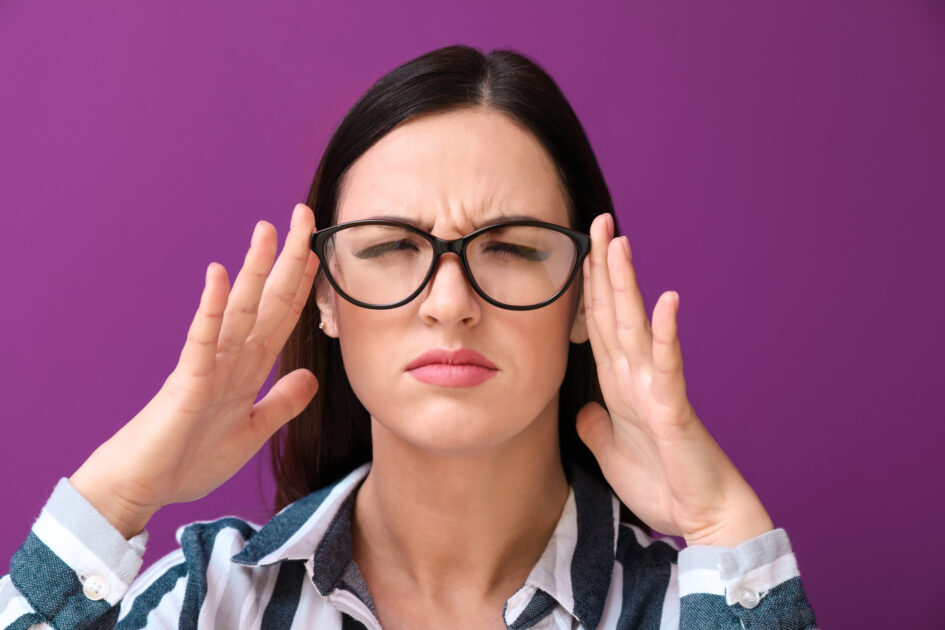Did you know that over 164 million US adults wear eyeglasses? Many people experience vision problems, but luckily most can be avoided with a bit of proactivity. The rest can be fixed with a fashionable pair of glasses!
Your eyesight is always changing, even if you were born with perfect vision. As you age, you might start having trouble focusing on your book or reading signs on the road. You might be experiencing new vision changes, and find yourself wondering, “Do I need glasses?”
Luckily, there are a few telltale signs of needing glasses. In this article, we’ll be discussing how to tell if you need glasses and how to get a great pair of glasses for a low price. Read on to learn more!

Learn the Common Signs of Needing Glasses
Common Causes of Vision Problems
The cornea is the clear film over the colored portion of your eye. Light passes through your cornea and pupil, and into the eye where it meets the lens.
The lens adjusts to the light and projects the image onto the retina. The retina is the back wall of the eye, and it transmits the images you see to your brain for processing.
The eye is one of the most complicated structures in the body. Each of these tiny components can break down due to old age or other common genetic conditions.
Nearsightedness
Nearsightedness, also called myopia, affects over 1.89 billion people worldwide. Nearsightedness is when close objects are clearly seen, but distant objects appear blurry or fuzzy.
Myopia is caused by a change in eye shape, resulting in the lens focusing the image in front of the retina. If the image is not focused directly onto the retina, the object will appear blurry.
Nearsightedness is common in children and teens, as their eyes are constantly growing. This can cause unnecessary struggles for kids in school, as they might have trouble seeing the whiteboard in class. Nothing a pair of glasses can’t fix!
Farsightedness
Farsightedness is almost the exact opposite of nearsightedness. If you’re farsighted, objects that are far away can be clearly seen. But, close objects are blurry.
Farsightedness occurs when the lens focuses the image behind the retina, resulting in an unclear picture.
Astigmatism
Astigmatism results in blurred vision for objects both near and far. Astigmatism is caused by a change in curvature in either the cornea or the lens. If the curves of the two structures don’t match, the image projected onto the retina will be entirely blurry.
Presbyopia
Presbyopia is considered a natural part of the aging process. It affects about 25% of the population and usually manifests around the age of 40.
Presbyopia is where the eye loses the ability to focus on close objects. This is because your eye lenses become less flexible with age. As the lenses lose flexibility, they can’t properly adjust to focus the images onto the retina.
You might notice a deterioration in your ability to read or focus on other objects up close.
Do I Need Glasses?
Your eyes do change over time, and not all changes are abnormal. Sometimes you might be able to get away without glasses, but some of these conditions will require glasses to maintain clear vision.
The following symptoms are how to know if you need glasses, so if you experience any of them you should be sure to check in with your eye doctor.
Changes in Image Clarity
Blurry vision is the most obvious sign. If you can’t recognize faces from 10 steps away or you have trouble reading books up close, you probably need glasses.
If you start to see double or see halos around certain objects, this could indicate a problem with your cornea or eye muscles. It could also be a symptom of cataracts.
Wavy vision, when straight lines appear wobbly, is a common sign of macular degeneration. Macular degeneration is when the center of the retina starts to weaken. This can result in vision loss.
Light Sensitivity
If you look out the window at night and can’t quite make out the shapes you see, or if night driving is a concern, you’re probably having trouble with your night vision. This can also be a sign of cataracts or another condition that requires vision correction.
You might also experience difficulty adjusting from dark to light and vice versa. This can be apparent if you’re driving on the highway. If a car with bright headlights passes you, you will have trouble adjusting as it passes.
These light issues are due to a weakening of your eye muscles. The muscles of the eye help the iris contract and expand, allowing it to meter out how much light to let in. Due to age or another condition, these muscles can weaken manifesting in vision problems.
Tired Eyes
If you’re having trouble with your phone or computer, this could be the beginning of farsightedness or presbyopia. You could also be experiencing eye strain when reading or looking at screens.
Eye strain, or eye fatigue, occurs when the cornea and lens aren’t working smoothly, so the small muscles in your eyes have to work harder. This can result in fatigue and headaches.
Eye strain, headaches, and digital fatigue can sometimes be corrected by taking frequent breaks from work and staying hydrated. However, these are more often signs you need glasses.
Picking Your Glasses
If you experience any of the above symptoms, it’s definitely time to check in with your doctor. Your eye doctor can determine the underlying causes of your vision changes and recommend a proper treatment plan.
Most likely, they’ll also give you a prescription for a new pair of glasses. The good news is, you can get any kind of glasses you want! You can find a pair of glasses to suit any face and aesthetic.
Getting glasses doesn’t need to be expensive. Be sure to check for sales and coupons, like Voogueme sales, to make sure you’re getting the best pair for your buck.
Save Your Eyes and Your Money
Even if you’re only experiencing mild symptoms, it’s best to still check in with your doctor and get a regular eye exam. If you’re still wondering, “Do I need glasses?” it’s best to schedule an appointment just to be sure.
After you have your prescription, be sure to check Save My Penny for coupons to save money on glasses, contacts, and more!


Leave a Reply